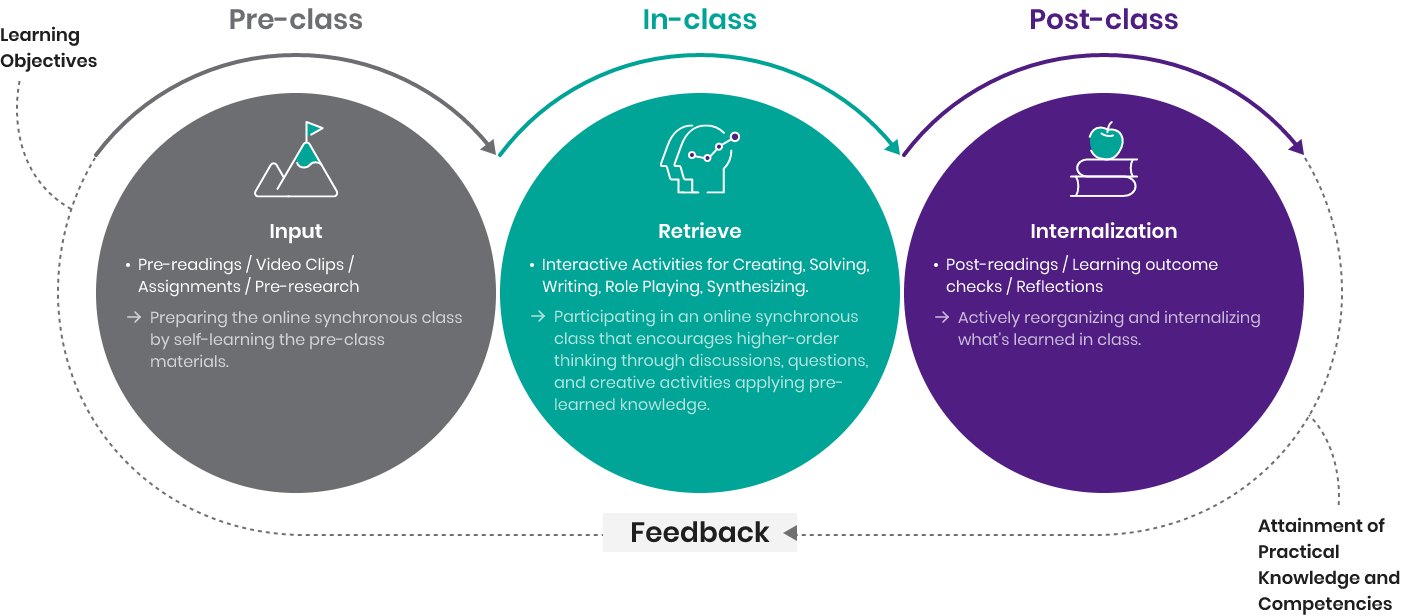- Support
- Education at Taejae
- Active learning

What is
"Active
Learning?"
Learn Actively
At Taejae University, we employ active learning pedagogy throughout all our academic programs. Active Learning is an approach to classwork that emphasizes student engagement with authentic learning activities, focused discussions, and problem-solving exercises.
We want you to spend less time sitting and listening, and more time engaged in activities that enable you to explore new concepts and apply them to real situations. We think this is a better way to foster deeper understandings of core subject matter. Student engagement is therefore at the center of all our learning activities. Our faculty members will work with you every step of the way, sometimes facilitating, sometimes collaborating, and always working to organize activities that stimulate learning.
We believe this is the best way to help you develop problem-solving skills, giving you the confidence to approach new challenges and create workable solutions. It encourages growth in your ability to think independently, fosters initiative-taking and, above all, gives you the skills needed to thrive in our rapidly evolving world.
Think about watching an educational program on TV. You definitely learn something, but what if you could immerse yourself into the actual setting and participate? That’s what our active learning model is designed to achieve. When you role-play, for example, or take a side in a debate that you might not agree with, you immerse yourself deeply into the situation and become an active participant, engaging in critical and creative thinking. This empowers you to make sense of what you encounter and gather life skills that help you mature intellectually.
We have established a structured approach to optimizing the learning experience, dividing classwork into Pre-class, In-class, and Post-class.

at Taejae University
-
Tripartite Instructional Model
Our pedagogy transcends conventional approaches of rote memorization and passive knowledge acquisition. Instead, we strive to cultivate a profound understanding and practical application of the subject matter with our Tripartite Instructional Model. It comprises three essential stages: Input - Retrieve- Internalization.
During the Pre-Class stage, students acquire knowledge of the class materials on their own and input what they learned into their cognitive domain. In the In-Class stage, that knowledge is retrieved. By using the learned knowledge in small group discussions, writing activities, and creative projects, students achieve a deeper understanding of the class materials. In the Post-Class stage, students reorganize and internalize the learned content through reflection and confirmation of the learning objectives.
This process is designed to empower you to construct your own knowledge from what you have learned. The process cycle cultivates higher order thinking skills and continually enhances your practical knowledge and competencies.
-
Agile Team-teaching Strategy
Our classes undergo a continuous process of improvement and development, with our faculty collaborating closely to consistently enhance the teaching methods. Rather than repetitively delivering the same content, our approach adapts in real-time to changes in trends and is sensitive to your learning outcomes and feedback. Our faculty forms a close-knit community that collectively discusses and researches how to improve course methodologies and content to help maintain momentum for student advancement.
-
Assessment for Higher-order Thinking
Our educational approach is centered on the assessment of one's capacity to apply acquired knowledge in real-world scenarios, with an emphasis on practical application rather than a mere confirmation of knowledge acquisition. We do not use evaluation methods such as multiple-choice examinations designed to measure memorization of course content.
Our approach to evaluations is on higher order thinking to measure the extent to which students have internalized what they have learned and how critically and creatively they can express the learning content.